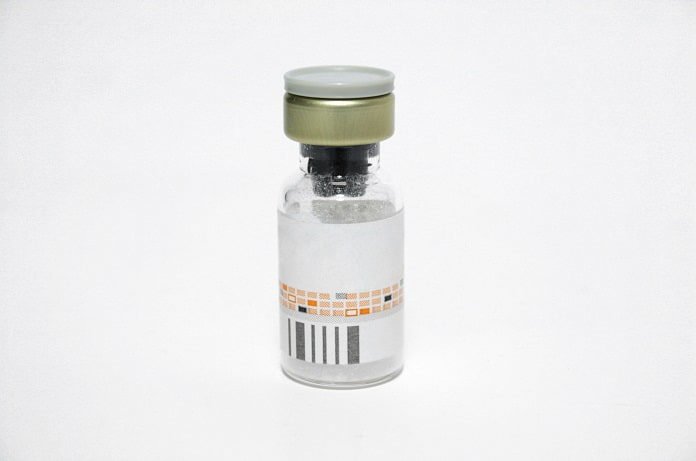A recent article in The Lancet showcases encouraging results from two Zika virus gene-based vaccine candidates being developed in the USA.
The Zika virus is a growing global health concern. Outbreaks of the Zika virus occurred in 2006, 2013, and 2015 on different continents across the world. There is currently no vaccine available for the disease. This presents a formidable challenge since the rapid development of a possible alternative is required to combat the next eminent outbreak.
The Zika virus belongs to the Flavivirus genus and is transmitted through the bite of the Aedes genus mosquito or from a pregnant mother to her fetus. In babies, this can result in brain malformations called microcephaly and other birth defects. Adults infected with Zika virus have no symptoms initially, however, they may develop fever, rash, joint pain, and red eyes later on.
DNA-based vaccine candidates showed extremely promising results with non-human primates in 2016. These vaccine candidates are being developed by theVaccine Research Center (VRC) at the National Institute of Allergy and Infectious Diseases(NIAID). The results from the current phase I studies evaluating the safety profile for these vaccines were eagerly awaited and were recently published in the journal The Lancet.
Gene-based Vaccines Requires Extensive Testing
The vaccines employed a plasmid-based approach, a technology which has been mastered by investigators at the Vaccine Research Center at the National Institute of Allergy and Infectious Diseases.A plasmid is a closed circular piece of DNA that carries viral genes engineered to produce structural proteins present on the viral coat. When injected intramuscularly, these protein components assemble to form a virus-like particle.
These particles maintain the surface characteristics similar to the coat of the virus but are non-infective to the administered subjects. Nevertheless, since the coat is so similar, the particles are recognized as foreign entities by the body, leading to the generation of a strong immune response and the creation of antibodies to fight off the perceived infection. These antibodies create an immunological memory in case there is an actual exposure to the infectious agent.
Since the vaccine is a foreign entity, it is necessary to test its safety profile (the occurrence side effects, called adverse events) among healthy volunteers. In some cases, the generated immune response may lead to auto-immune and other severe allergic reactions and therefore such phase I studies also mandate the analysis of patient reaction for one to four weeks following the administration of the vaccine.
The goal of the study was to assess the safety profile and immunogenic potency that is generated by the Zika virus vaccine candidates among healthy subjects. The study published in a recent edition of The Lancet describes results from a phase I study enrolling more than 125 healthy volunteers who were tested with two vaccine candidates across three medical centers.
They tested 80 volunteers in the VRC 319 trial with the vaccine candidate VRC 5288, and 45 volunteers with VRC5283 within the VRC 320 trial. These vaccines employ plasmids (closed, circular DNA) that encode structural protein components present on the outer viral coat of the Zika virus. The study was open-labeled, meaning that both the volunteers and the investigators were aware which treatment was administered.
The age of participants ranged from 18 to 50 year old in the two trials. The patients were stratified into control and vaccine groups based on a computer-generated randomization. The researchers administered 4 mg vaccines at regular intervals and measured local and systematic reactogenicity for up to four weeks. Reactogenicity refers to any physical symptoms that may manifest in subjects following the generation of an immune response. This includes symptoms such as swelling at the site of injection, pain, abrupt variations in body temperature, and other moderate to severe allergic reactions.
Other clinical and laboratory parameters were measured at regular intervals following injections to monitor the tolerability and safety of the vaccine. To measure how potent the immunogenic response, neutralizing antibody response and T–cell responses were also measured
Vaccines Proved Successful
Overall testing indicated that both Zika virus vaccine candidates were relatively well-tolerated. Most post-injection body reactions were mild.T he antibody response within patients ranged from 60 to 89% indicating that the approach was successful in triggering adequate antibodies when injected into the subjects. A potent T-cell response and accompanying cytokines were elevated in patients receiving the vaccines. What is particularly encouraging was that all 14 subjects treated with the candidate VRC 5283 exhibited antibody generation and – cell response.
This phase I study promises that some of these vaccine candidates, upon further validation research, may offer a much-needed solution to a rapidly emerging global health concern. The vaccine candidate VRC5283 has now moved on to phase II of clinical research and the results of those studies will be eagerly awaited.
Written by Vinayak Khattar, Ph.D., M.B.A.
References:
(1) Gaudinski, M. R., Houser, K. V., Morabito, K. M., Hu, Z., Yamshchikov, G., Rothwell, R. S., . . . teams, V. R. C. s. (2017). Safety, tolerability, and immunogenicity of two Zika virus DNA vaccine candidates in healthy adults: randomised, open-label, phase 1 clinical trials. Lancet. doi:10.1016/S0140-6736(17)33105-7
(2) Dowd, K. A., Ko, S. Y., Morabito, K. M., Yang, E. S., Pelc, R. S., DeMaso, C. R., . . . Graham, B. S. (2016). Rapid development of a DNA vaccine for Zika virus. Science, 354(6309), 237-240. doi:10.1126/science.aai9137



